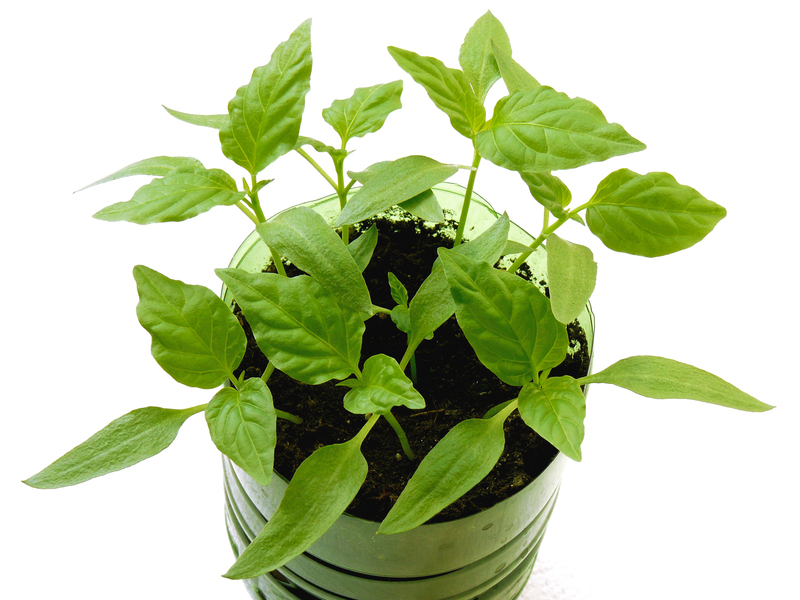Where to Recycle Your Old Kitchen Pots and Pans
If you've recently upgraded your cookware or are looking to declutter your kitchen, you may be asking yourself, Where can I recycle my old pots and pans? Disposing of unwanted kitchenware responsibly is not always straightforward, as traditional curbside recycling may not accept them. This comprehensive guide will help you find the best places to recycle old kitchen pots and pans, explore eco-friendly options, and even suggest ways to give your cookware a new lease on life.
Why Should You Recycle Old Kitchen Cookware?
Recycling your old kitchen pots and pans is essential for several reasons:
- Environmental Impact: Cookware is often made from metals such as aluminum, stainless steel, and copper--materials that can be recycled to conserve natural resources and reduce energy use.
- Waste Reduction: Recycling helps keep bulky items out of landfills, where they can take decades or centuries to break down.
- Supporting the Circular Economy: By recycling, you contribute to a more sustainable lifecycle for everyday products--including kitchen pots and pans.

What Types of Pots and Pans Can Be Recycled?
Before you start recycling, it's important to understand which kitchen cookware items are eligible:
- Stainless Steel Cookware
- Aluminum Pots and Pans
- Copper Pots
- Cast Iron Skillets
- Nonstick Pans (with conditions)
- Glass Bakeware (in some facilities)
Note: Some pots and pans with plastic handles, non-stick coatings, or glass lids may have specific recycling requirements. Be sure to read the guidelines for your nearest recycling facility (see below).
Where to Recycle Old Kitchen Pots and Pans: Top Options
1. Local Scrap Metal Yards
Scrap metal yards are one of the best places to recycle your old pots and pans. These facilities accept a wide range of metal kitchenware, often including items with minor non-metal attachments (such as plastic handles, which the yard may remove).
- How to Prepare: Remove as much non-metal as possible and clean off heavy food residues.
- Accepted Materials: Most yards accept stainless steel, aluminum, cast iron, and copper items.
- Tip: You may even earn a small sum of money for valuable metals like copper or large quantities of aluminum.
2. Municipal Recycling Centers
City-run recycling centers or transfer stations sometimes take pots and pans with other scrap metals. They typically do not accept coated items or those with non-removable handles, but it's always best to check with your local center.
- Contact your local department of public works or sanitation for details.
- Look for "scrap metal" or "metal goods" bins at your local drop-off point.
3. Manufacturer Take-Back Programs
Some leading cookware brands have take-back or recycling programs for old products. For example, Calphalon runs a recycling program where you can mail in up to three pots and pans of any brand for responsible recycling. Check with your cookware manufacturer to see if they offer similar services.
- Mail-back programs often let you recycle nonstick aluminum and stainless steel cookware.
- Some brands offer discounts or credit toward new purchases for participating.
4. Nonprofit and Community Donation Centers
If your pots and pans are still in usable condition, consider donating them to local charities, shelters, food banks, or community centers. Organizations like Goodwill and the Salvation Army often accept gently-used cookware.
- Ensure your donated items are clean and free from significant damage.
- Some secondhand stores and thrift shops resell cookware to benefit local communities.
- Donation is a more sustainable option than disposal--choose this route if possible!
5. Specialized Recycling Programs
There are specialty recyclers--such as TerraCycle--that offer recycling for hard-to-recycle household products, including certain cookware types. TerraCycle Zero Waste Boxes can be purchased and filled with cookware (check their accepted materials list), which are then mailed back for comprehensive recycling.
6. Curbside Pickup Waste Services (With Caution)
Most regular curbside recycling programs do not accept cookware due to their size, coatings, or mixed materials. However, some cities have special bulk or metal collection days when larger or unusual items can be picked up. Consult your municipal waste calendar for details.
How to Recycle Old Cookware: Step-by-Step
- Assess the Condition: Is your pot or pan still usable or broken beyond repair?
- Separate Materials: Remove plastic or glass lids, and unscrew handles if possible.
- Clean Thoroughly: Wash off food residues before recycling or donating.
- Determine Material Type: Identify if it's aluminum, stainless steel, cast iron, or copper.
- Choose the Right Outlet: For recycling, visit scrap metal yards or your local recycling center. For donation, drop off at community centers or thrift stores.
- Contact Ahead: Call or check the website of the recycling or donation center to confirm their policies.
Upcycling and Creative Reuse Ideas for Old Kitchen Pots and Pans
Can't recycle locally? Give your old cookware a creative, sustainable twist! Here are some top upcycling ideas:
- Planters: Turn old pots into unique garden planters or flowerpots.
- Hanging Organizers: Mount pans on walls or fences to use as storage bins or organizers.
- Bird Baths or Feeders: Repurpose wide, shallow pans as rustic bird baths or feeders.
- Art Projects: Paint or decorate pans for use in crafts or as quirky wall art.
- Gift Baskets: Fill a pan with kitchen goodies for a fun, practical gift presentation.
Frequently Asked Questions: Recycling Kitchen Pots and Pans
Can You Recycle Nonstick Pans?
Some recycling facilities accept nonstick cookware if the coating is removed, but many do not because of the chemical coatings (like Teflon). Check with your local scrap metal yard or a manufacturer take-back program for options.
Do You Have to Remove Handles or Lids?
Yes, where possible. Separate non-metal parts such as plastic handles or glass lids before recycling your kitchen pots and pans. Most metal recyclers prefer purely metallic items.
What If My Pans Are Severely Damaged?
If cookware is warped, cracked, or heavily rusted, use a scrap metal yard or recycling center. Avoid donating damaged items as these can't be safely reused.
Is It Illegal to Throw Pots and Pans in the Household Trash?
While not always illegal, it is strongly discouraged. Many municipalities advise against throwing large metal objects into general waste due to environmental concerns and strict landfill regulations.
How to Find Recycling Centers for Pots and Pans Near You
Here's how to locate local options for recycling your old kitchen cookware:
- Earth911.com: Enter your item and zip code in their search tool to find local scrap metal or recycling facilities.
- Call2Recycle.org: Particularly for small kitchen electronics or appliances that come bundled with metal pans.
- City or County Website: Many municipalities list drop-off sites for scrap metal and household goods on their official web pages.
- Google Maps: Search for "scrap metal recycling center near me" or "metal recycling near me."
- Direct Inquiry: Call local yards or community centers in advance to verify what items are accepted.

Summary: Eco-Friendly Disposal of Pots and Pans
Recycling or responsibly reusing your old kitchen pots and pans not only helps protect the planet but may even benefit your community. The next time you're ready to upgrade your cookware, remember these sustainable disposal tips:
- Try to recycle through scrap metal yards or municipal centers first.
- Donate usable items to local charities, community kitchens, or shelters.
- For hard-to-recycle items, explore manufacturer take-back or specialized recycling programs.
- Get creative and upcycle cookware at home for fun and functional DIY projects.
By taking the time to find out where to recycle your old kitchen pots and pans, you play an important role in environmental conservation and community welfare. So, before you toss that worn-out skillet or battered saucepan in the trash, explore the many eco-friendly options available and do your part for a cleaner, greener world!
